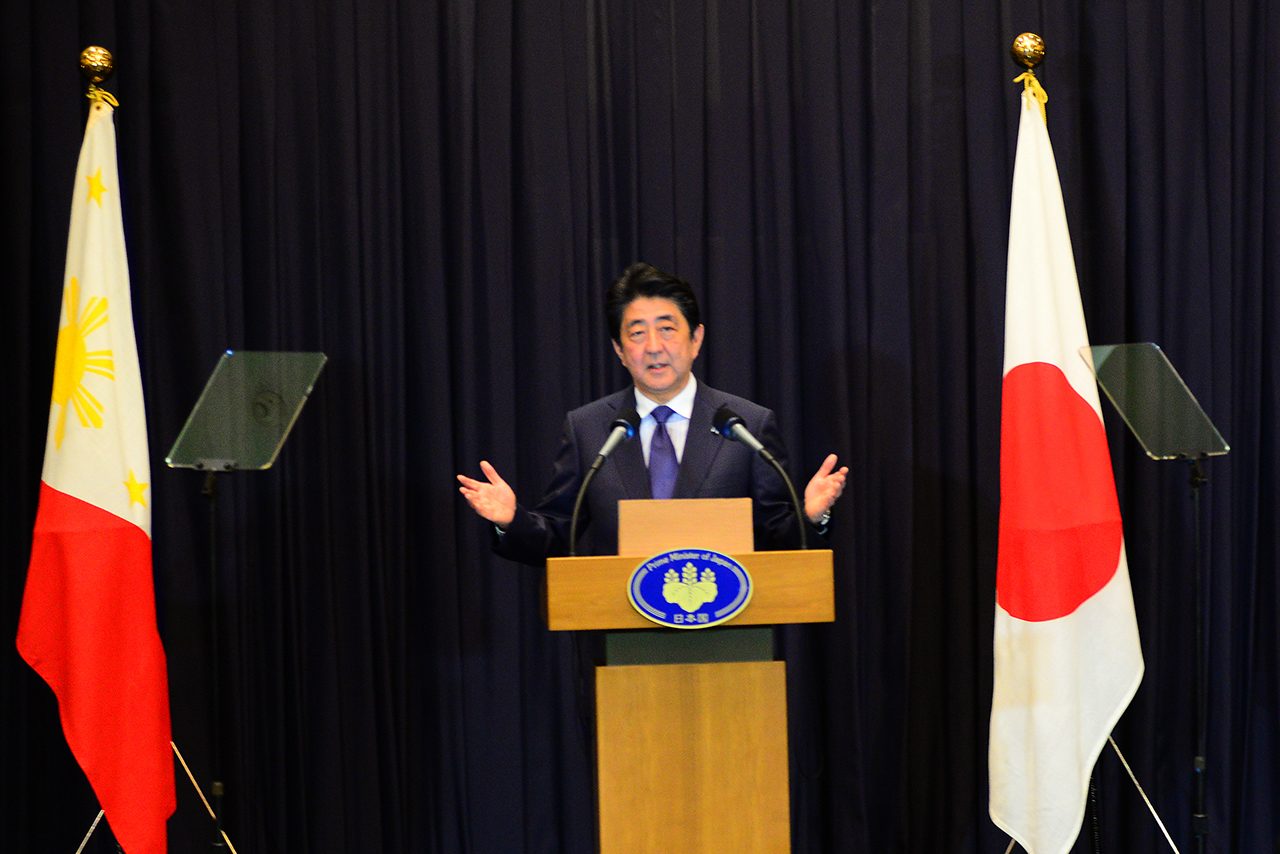SUMMARY
This is AI generated summarization, which may have errors. For context, always refer to the full article.

MANILA, Philippines – When Japanese Prime Minister Shinzo Abe arrived in Manila on November 12, he had a clear mission in mind.
Aside from the usual trade and business talk with countries participating in the annual Association of Southeast Asian Nations (ASEAN) Summit, the Japanese prime minister would rally world leaders, particularly those from the regional bloc, to put pressure on North Korea to make it stop its missile and nuclear programs.
Speaking before the ASEAN-Japan Summit, Abe said North Korea was a “great threat” that “we have never experienced.” In a rare trilateral meeting between United States President Donald Trump and Australian Prime Minister Malcolm Turnbull, Abe noted that the issue of North Korea is an “immediate challenge” to the 3 countries.
The next day, at the East Asia Summit, Abe said leaders “shared an unprecedented sense of crisis” over North Koreans actions.
Abe’s push is expected. When North Korea tested its missiles twice in 2017, they flew over Japan and into the Pacific.
“Since September 15, there have been no acts of provocation from North Korea but oral provocation continues,” noted the Prime Minister in a press briefing on his last day in Manila.
The ideal, at least according to Abe, is for the international community to follow the United Nations (UN) Security Council’s sanctions on North Korea, in hopes of putting pressure on Pyongyang.
Japan said the United States and even North Korea’s traditional allies – Russia and China – agreed on “closely watching” the effect of the sanctions.
The concern over North Korea ultimately boils down to regional stability, which serves to Japan’s interests. Abe in Manila reiterated pledges – in the form of aide and training – to help ASEAN countries, including the Philippines, in combating terrorism.
Abe also pledged over 55 billion yen over 3 years to “enhance maritime law enforcement and capacity-building support.”
While in Manila, Abe held bilateral meetings with the Philippines, Brunei, Malaysia, and Indonesia, to name a few.
In summits, forums, and press conferences in Manila, Abe and Japanese Foreign Press Secretary Norio Mayurama made repeated mentions of the importance of the “rule of law” and the “freedom of navigation” in the sea.
“This area from the Pacific to Indian ocean must be free and open for all,” said Abe in a press conference.
Abe touted a “new start” in relations between Japan and China, citing his talks with Chinese President Xi Jinping and Premier Li Keqiang.
“For the peace and stability of this region, we need to have a deeper cooperation between Japan and China,” said the Japanese prime minister.
China could prove to be crucial when it comes to its historical ally North Korea. Its relationship has turned rather cold, however, following Pyongyang’s missile tests. Abe and even Trump, among other world leaders, expects China to put the same pressure on North Korea, partly through the sanctions imposed by the United Nations.
Coincidentally, days after the summit, China announced that a special envoy of Chinese President Xi would visit North Korea. It’s unclear if the visit is about North Korea’s missile and nuclear program. – Rappler.com
Add a comment
How does this make you feel?
There are no comments yet. Add your comment to start the conversation.